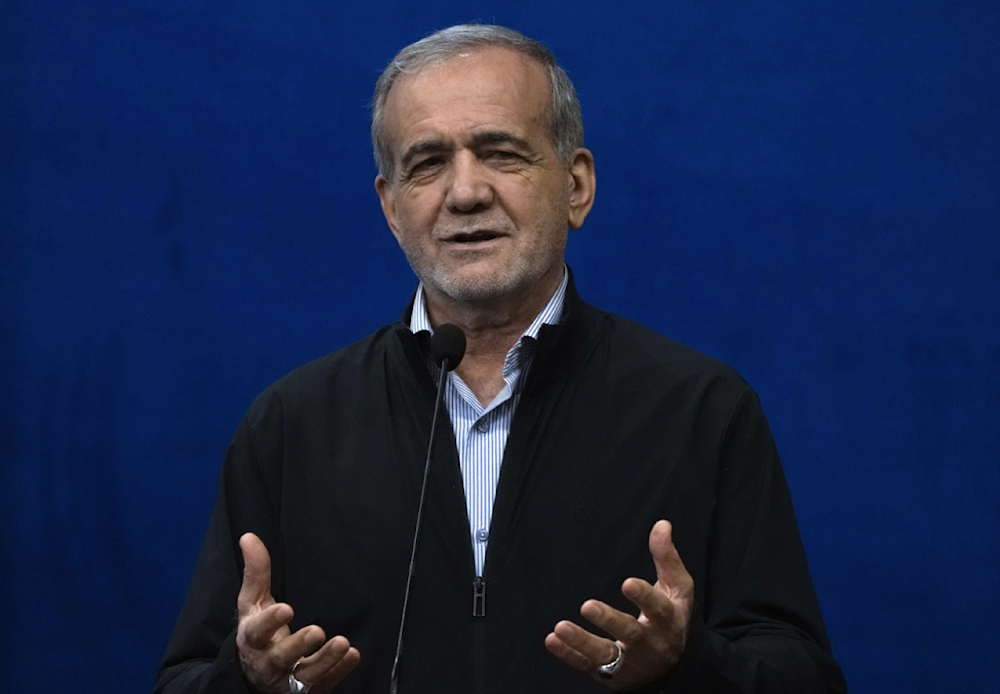Pezeshkian: Internal unity key response to 'snapback' mechanism
Iranian President Massoud Pezeshkian emphasized that sanctions and the "snapback" mechanism pose major challenges, highlighting internal unity as his government’s priority while rejecting war but vowing to respond firmly to any US or Israeli aggression.
-

Iranian President Masoud Pezeshkian speaks during his press conference in Tehran on September 16, 2024. (AP)
Iranian President Masoud Pezhshkian affirmed that his country does not take sanctions or the "snapback" mechanism lightly, emphasizing that "a large part of our problems today are the result of sanctions."
He stressed that his government will work to prevent the activation of the mechanism, which could deepen the economic and political challenges facing Iran.
In an interview with Iranian television, Pezeshkian argued that countries violating international laws lack the legitimacy to accuse Iran of breaking treaties. He reiterated that Iran seeks to avoid the "snapback" mechanism at all costs.
Internal unity over military power
The Iranian president highlighted the importance of national cohesion over military capabilities. "If we have missiles but we lose the people, we have nothing," he said, underlining that his fear of internal division outweighs concerns about sanctions or external threats.
Pezeshkian explained that his central government project is to strengthen internal unity, declaring: "If we strengthen our internal unity, the enemy will not be able to inflict any damage on the country."
Iran’s position on war and defense
Reaffirming Iran’s defensive stance, Pezeshkian stated that the Islamic Republic "did not and will not want war." He noted that the enemy miscalculated during its latest aggression, assuming that Iran was at its weakest and that public unrest would topple the government within days—something that did not happen.
"We don't want war, but if they attack us, we will stand up to them strongly," the president stressed.
Pezeshkian also pointed to ongoing efforts by the US and the Israeli entity to destabilize Iran and sow division among its people. He warned that such strategies would not succeed as long as internal unity remains strong, reaffirming his commitment to safeguarding Iran’s stability against foreign pressure and aggression.
Iran vows response as E3 triggers UN 'snapback' sanctions mechanism
Foreign Minister Abbas Araghchi condemned the measure as "illegal and unjustified," warning that Tehran would respond "appropriately to protect and guarantee its national rights and interests."
In a phone call with his French, British, and German counterparts, Araghchi urged them to "appropriately correct this wrong decision in the coming days." He stopped short of detailing possible retaliatory steps but hinted that the E3 risk being excluded from any future negotiations on Iran’s nuclear program.
The E3 action came just days after Iranian and European diplomats held a second round of talks in Geneva, billed as a last chance to salvage engagement before the October deadline for invoking the snapback clause.
The discussions collapsed without "tangible commitments," according to European officials, who claim that Tehran’s ongoing breaches of enrichment limits left them with no choice but to act.

 3 Min Read
3 Min Read








